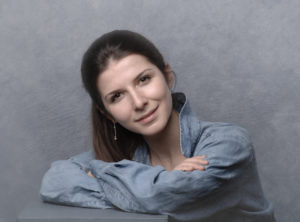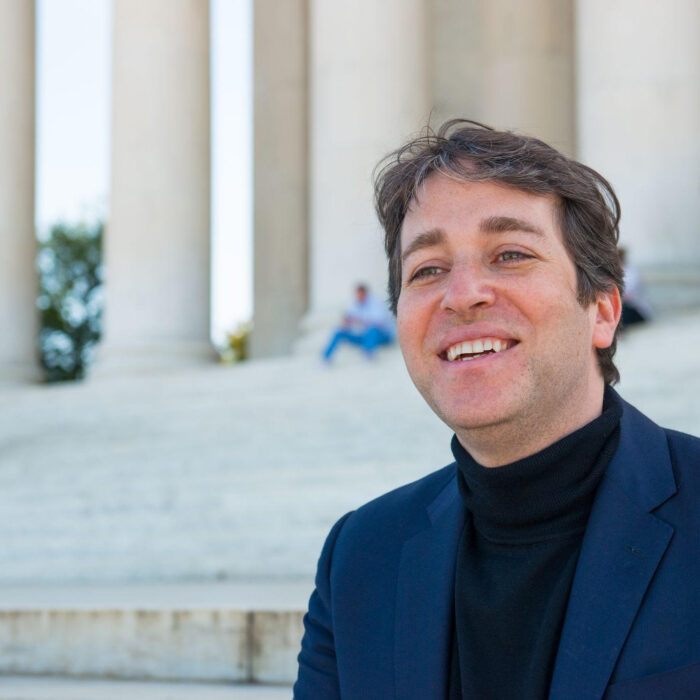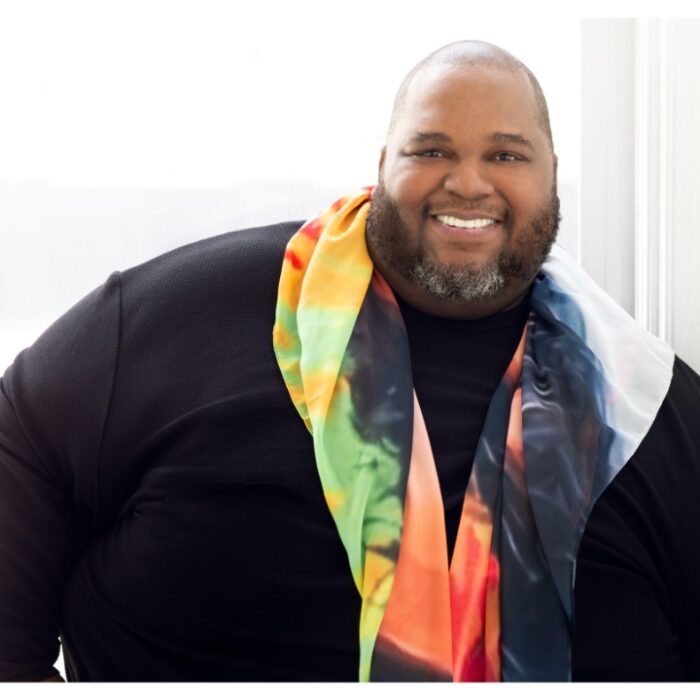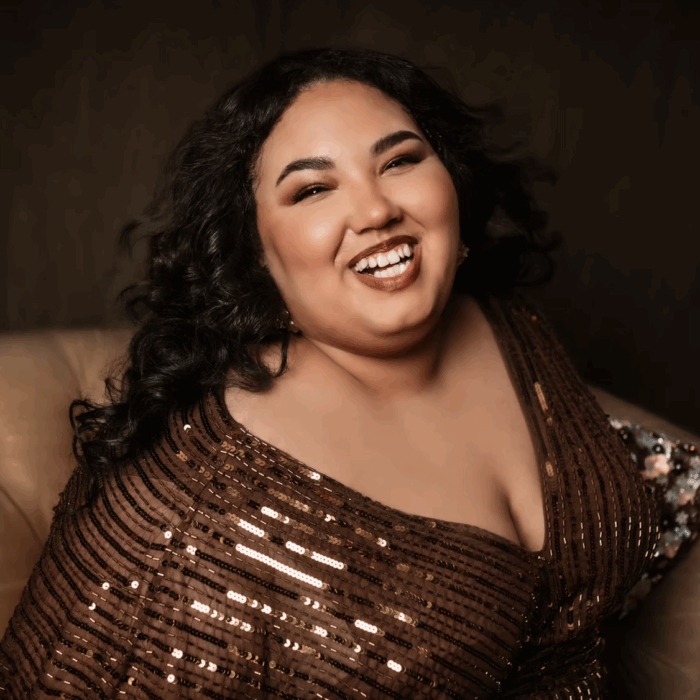
Founding a New Festival – Betty Makharinsky on Co-founding The Vache Baroque Festival
By Alan NeilsonSome people seem to be born with an irrepressible zest for life, who ooze positivity and energy, and view the world as a place in which they can fulfill their ambitions and dreams. Setbacks and barriers are but challenges to be overcome, mistakes are something to be learnt from, little seems to deter them.
They are always on the move, involving themselves in their latest exciting initiative Such was the impression made by Betty Makharinsky in a recent interview she gave to OperaWire.
Still in her twenties, she already possesses an impressive biography. Having received a first class honors degree in Music from Oxford University, she then went on to study singing at London’s Guildhall School of Music and now enjoys a career as a singer specializing, although not exclusively so, in the baroque. She also co-founded The Philomel Project with Pavel Timofeyevesky, which organises and presents musical events, such as a series at the Crick Institute and a recent concert for the “Children of the Ukraine” at St James’s Piccadilly Church. As well as her professional engagements she often finds herself back at Oxford, participating in composition workshops with pianist Jonathan Powell, a partnership that has led to numerous recitals in the UK and eastern Europe.
Yet, for all her achievements, Makharinsky is the first to acknowledge the help and support she has received over the years from her family, teachers and colleagues, and is particularly grateful to her first singing teacher, soprano Nelly Miricioiu, whom she saw as more than just a teacher.
“She was my mentor, always ready to give me advice and support, and would never stick rigidly to the clock. I now consider her more as a friend. We go out for meals together, and she is still always keen to help and support me.”
Currently, Makharinsky is studying in Italy with Antonio Lemmo, “a wonderful teacher who runs a household continually full of students from all over Europe.”
This summer finds her busily organizing and preparing for the forthcoming Vache Baroque Festival which she co-founded alongside Jonathan Darbourne in 2020, an idea which grew out of the COVID crisis. While many people were locked down, lamenting lost opportunities, Makharinsky quickly realized the situation was actually ideal for establishing a new festival.
“Everything was shut down, so musicians, singers, directors, along with everyone else associated with theatres, apart from a few fortunate people, had little or no work, and this definitely worked in our favor,” She told OperaWire. “We were able to attract established singers of quality, such as the Cardiff Singer of the World audience prize winner Katie Bray, something which would have been unlikely under normal conditions. Also young singers, who were just starting out on their careers and ready for opportunities were eager to work for the festival. If it was not for Covid, the festival may never have happened.”
Vache House
The Vache is a manor house, surrounded by woodland and a garden estate nestled at the foot of the Chiltern Hills in South East England. Named after the De Vache family who acquired the property in 1360, it has changed ownership on numerous occasions, even at one stage falling into the hands of the future James II. The house, which was probably first developed in that late 15th to early 16th century and was added to incrementally over the years, is now classed as a grade II listed building. Its extensive gardens with its array of mature trees and lawned open spaces make it a perfect choice for an outdoor summer music festival.
As Makharinsky pointed out “It is ideal for an afternoon picnic, and leisurely walks around the gardens, while festival-goers prepare themselves for the evening performance.”
If this conjures up the idea that the festival is attempting to become a Glyndebourne for the baroque, it is something she is keen to dispel, “We do not want the Vache Baroque Festival to have an elitist reputation.”
Although she admits that patrons from more wealthy socio-economic groups are very important to the long-term sustainability of the festival, she goes on to say “We want a balanced clientele and, therefore, we are looking for ways to improve accessibility. For example, in the first two years of the festival we put aside 15 percent of the tickets at reduced prices for the under 35s. We also have a complimentary ticket ballot for individuals and community groups and open dress rehearsals. Obviously, such initiatives have limitations and favor people who are already aware of such schemes and how they operate, so we are constantly searching for new ways to improve. It is something we really care about.”
The Festival
A program for an annual festival can take considerable time and effort to organize, and you would imagine that establishing a new festival from scratch would take substantially longer. Yet, this was definitely not the case with the Vache Baroque Festival, as Makharinsky proudly pointed out, “From the initial idea to the opening night took twelve weeks ”
When one thinks of all the challenges involved in such an undertaking, twelve weeks sounds surprisingly fast, and one wonders how Makharinsky and her team managed it. She herself reflected on the situation with not a little disbelief.
“At first, I had no idea of the scope of the enterprise. We did everything in small steps, developed a website, opened a company bank account and things started moving forward very quickly. It soon took on a life of its own, and I found myself working very long days.”
Financial constraints can make new enterprises of any kind difficult to get off the ground, and the festival was no different in this respect, “We were not well-known, and in the early stages we were not even registered as a charity, so we could not benefit from gift aid,” yet the festival did manage to get off the ground, which in no small part was down to the free reign given to the organization by the current owners of Vache House.
As she gratefully acknowledges “they not only agreed to let us use the grounds, but since becoming involved in the project, they have become one of its driving forces, and have generously helped with the purchase of a cover for the stage – an absolute must when using instruments.”
This summer’s festival will run at Vache for three days, from the 2nd to 4th of September and in London for a one-off event later in the year. A number of performances will be presented, including concerts, pop-up events, a family-friendly show and of course, opera, which as she points out “is the central event of the festival, if for no other reason that it costs more in time and money, but it is only one event of many.”
The festival kicked off its opening season in 2020 with a production of Purcell’s “Dido & Aeneas,” which it followed up in 2021 with performances of Händel’s “Acis and Galatea.” As both are well-known works with strong English connections, it might sound as if the festival has a fairly conservative approach, yet nothing could be further from the truth.
In fact, Vache Baroque’s philosophy has innovation at its heart. “Improvisation and multimedia approach was central to the drama of baroque music, and this is something we are determined to incorporate into the festival, not that we are against more traditional practices at all. So for our production of ‘Dido & Aeneas’ the choreographer Ukweli Roach created a multi-genre, multi-era presentation, which successfully complemented the traditional staging. And last year we produced a dramatic journey through John Milton’s ‘Paradise Lost’ and ‘Paradise Regained’ woven into J. S. Bach’s cantatas 19, 54, and 80, as well as music by J. C. Bach (the elder) and Heinrich Schütz, in which we were fortunate to have Simon Callow CBE perform the role of Satan.”
The reaction to the festival from critics has been very positive, drawing attention to the “stunning surroundings” and “astonishing immediate acoustic,” “thrilling performance” and “sensational choreography.”
But what was the audiences’ reaction, how have the patrons responded? Makharinsky with more than a touch of modesty replied “When we premiered ‘Dido & Aeneas’ in 2020, people had recently been locked down and had not been for some time, so maybe it was just the joy of attending an opera, and at being outside, but they were very enthusiastic.”
It comes as no surprise, therefore, that this year the chosen opera is less well-known than the previous years’ offerings. “We want to do something more challenging for the audience, and have decided upon Charpentier’s “La Descente D’Orphée Aux Enfers.” It is a really beautiful work, which will be performed in the original French. It will be presented as a double bill alongside Carissimi’s short oratorio “Jephte.” We are once again very fortunate to have a great cast, including tenor Samuel Boden in the role of Orphée,” who is bilingual in English and French, and is one of the best haute-contre tenors around.”
Looking Forward
So what improvements is the festival looking to make over the coming years? Two problems which immediately spring to mind, and which are often associated with opera festivals located in the countryside are a lack of accommodation and poor public transport, but this is not something which worries her.
“Even though Vache House is located in the beautiful Chilterns Hills, we are in fact very close to London, and not too far from the Chalfont and Latimer London Underground station from where we lay on free transport. So people will be able to reserve accommodation in London and travel to and from the festival with ease.”
Being an outdoor festival, the weather is obviously a major factor in determining its success, especially as there isn’t an indoor alternative if it rains. So far they have been lucky and all the events have gone ahead as planned, but it is something which is a worry “At present we advise the audience to bring umbrellas and warm clothing just in case. If it does rain, however, then the opera will be performed indoors, but not with an audience. Vache House is a family residence, so it is not possible to have people inside. It will be filmed and then people will be able to access it online. Obviously, this is not an ideal situation, and it is something we are looking at, as it will be difficult to continue like this into the future.”
As for the longer-term, Makharinsky is full of ideas, although expanding the current audience capacity of 250 is not one of them. “The intimacy of having a small audience close to the performers is something we want to preserve, baroque music is at its best in an intimate environment, especially for those who might not have experienced it before.” With regard to the events themselves, however, it quickly became clear that she envisages the festival as something that goes way beyond simple performances of works from the past, rather she is keen to blend tradition with innovation.
“We want to take the baroque forward and are very interested in commissioning new works. Last year we commissioned the Maltese composer Euchar Gravina to reimagine Purcell’s song ‘Music for a while,’ which combined pre-recorded electronic music with piano and bass-baritone. Also we would like to introduce recitals. There is a large room in the house which will be able to seat 60 people, which would be a perfect environment for direct communication between performers and their audience.”
One final question that had to be asked, how does she see her career developing, and in particular how does she envisage balancing her many commitments? For not only is she managing, developing and performing in the festival, singing in concerts and opera, but she is also heavily involved in other activities, such as the Philomel project. “In my heart I am a singer. It is the thing I love and really can’t see myself not continuing” but as she admits “working a long day on administration and organization tires you out, and trying to practice your singing after such a day is not ideal, so you have to plan carefully. I hope that I can continue pursuing a singing career, sing in interesting places around the world, and then focus on my other interests. The problem is that I am really proud of what I have achieved with the Vache Festival, and do not want to give it up. It is a difficult balance, I just wish that I had more time!”



